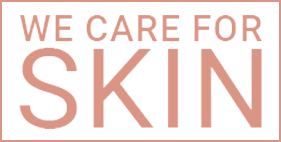In pursuit of a perfect and healthy skin, we want only the best products to work their magic and fix our skin problems from their root causes. But sometimes, even the best ones do not always guarantee a satisfactory result. The problem might be in the way that we are using these products. How we use them can mean the difference between fixing or worsening the problem. In the case of using moisturizers, we might be forming habits that can cause more harm than good, thus raising the question: can moisturizers cause acne?
A famous celebrity doctor created a bit of a stir a few years ago when she claimed that she was "not a believer of moisturizers." According to her, you don't need moisturizer, especially here in the Philippines, since it is already hot and humid. She also said that using moisturizer in a tropical country could only make you oilier, clog your pores, and cause breakouts. But do her claims match with what the science and evidence say? And again, can moisturizers cause acne? Let's take a closer look.
Moisturizers 101
Face moisturizers are one of the many components of a skin care routine. And contrary to the claim, they actually play an important role in hydration and overall skin health. Moisturizers can be lotions or creams formulated with emollients and humectants to strengthen the skin barrier and restore moisture.
Moisturizers work in two ways: some create a seal that traps moisture in the skin to keep it hydrated, while others restore lost moisture by attracting water from the deeper layers of the skin to the outermost layer. Knowing your skin type and knowing the types of moisturizers to use will greatly impact the results that you will get from using one.
Moisturizers are categorized by their base ingredients: water and oil. Knowing what to look for on the ingredients label will help you understand which type will work best for your skin's needs and type.
Water-based moisturizers: Water-based moisturizers are lightweight, non-greasy, and quick to be absorbed by the skin. Glycerin and hyaluronic acid are usually the ingredients in these products, and they work by delivering hydration to dry skin type.
Oil-based moisturizers: For those who find that their skin is lacking natural oils or sebum, the use of oil-based moisturizers is more efficient in repairing damaged skin barriers to help retain moisture. Since the skin needs sebum to thrive, oil-based moisturizers offer the most hydration by ensuring that the skin can retain the moisture for better hydration. Contrary to popular belief, oil-based moisturizers do not necessarily contribute to clogged pores and hence do not cause acne breakouts, particularly when used by individuals with oily skin type. The theory behind using oil-based moisturizers for oily skin is that they balance out the skin’s sebum production, which then encourages the skin’s own oil to produce normally. Active ingredients in oil-based moisturizers fall into three classifications:
Emollients cover the skin with a protective layer to lock in moisture that soothes and heals dry and dehydrated skin. Emollients are mainly used in treating dry and flaky skin, and they also soften and repair skin damage. Shea butter, plant and mineral oils, and animal oils are emollients.
Humectants are substances that attract water and are mainly used for relieving dry and dehydrated skin. These work differently from emollients, as they attract water to hydrate rather than trapping it. Humectants can also draw out water and moisture from the inner layers of the skin to support the outermost layer. It can also draw out moisture from the surroundings if certain environmental conditions are met. Glycerin and hyaluronic acid are humectants.
Occlusives help hydrate the skin by providing a protective seal over it, preventing moisture loss instead of increasing the moisture levels of the skin. Occlusives work best when topically applied to damp skin, but they can sometimes feel heavy and greasy to the skin. This said, they are best used in a colder climate or in places where the air is cold and dry. Some occlusives include beeswax and argan oil.
Can moisturizers cause acne?
So can moisturizers cause acne? The short answer is mainly no, but sometimes yes. Luckily for most of us, moisturizers themselves do not necessarily cause acne, as they actually offer a significant amount of benefits instead of doing more harm to the skin.
The only important thing to note is that the way it is applied can contribute to causing acne. Remember to only use the amount that your skin needs. Excessive moisturizing can leave residue that sits atop the skin and form layers of oil, bacteria, and other ingredients that can clog pores; in this way, you can say moisturizers can cause acne.
Also make sure to properly cleanse your face prior to applying moisturizer. You don’t want to be trapping oil, dirt, and other debris in your pores as this will surely result in a zit or two.
Moreover, using moisturizers actually has its benefits in controlling acne breakouts. For one, moisturizers are used to relieve dry skin and control sebum production. It is also helpful in keeping the skin youthful and plump-looking.
What to look for in a moisturizer?
It is vital to note that certain moisturizers work well for certain skin types. Some individuals should be more wary about choosing the right product because their skin might be more sensitive than others'. So, when looking for a product that will suit your skin's needs, check if a product is safe for sensitive and acne-prone skin.
Another important factor to look for is that your moisturizer should be non-comedogenic. This means that it doesn't contain any ingredients that could clog the pores. Most moisturizers today also contain other ingredients like vitamins, plant extracts, and other bioactive ingredients for additional benefits.
A good example of a moisturizer that checks all these boxes is Humeda cream. It is a water-based daily moisturizer that is non-oily and featherlight. It also extensively hydrates the skin and is safe to be used by individuals with sensitive and acne-prone skin. As for its content, it contains a list of beneficial ingredients, but the most noteworthy ones—Pentavitin (saccharide isomerate) and Hydranov PA (water, phenethyl alcohol, sodium carrageenan, and sea salt)—offer complementary actions in providing deep and long-lasting hydration.
The Hydranov PA is derived from Furcellaria lumbricalis extract, a type of red algae which is known to protect the skin from pollution damage and maintain hydration. Pentavitin, on the other hand, mimics the actions of biomolecules found in the skin's Natural Moisturizing Factor (NMF). Pentavitin works by binding with the free lysine amino group in the stratum corneum, or the outermost layer of the skin. This produces a barrier that locks in moisture in the skin.
It also contains dimethicone which reduces transepidermal water loss (TEWL) without a greasy feel and contains both occlusive and emollient properties. It is suitable for acne and sensitive patients as it is noncomedogenic and hypoallergenic.
Signs that you are using moisturizers wrong
When it comes to using moisturizers, it is already established that applying less benefits you more. If you have not realized that the way you’re using moisturizers might be causing more problems, here are some signs that you might be using your moisturizers wrong:
Clogged pores can often be an indication that you are excessively applying moisturizers. Excess moisturizers on the skin can trap oil and dead skin cells beneath the skin, which can cause blackheads, whiteheads, and acne.
Acne breakouts, as a result of clogged pores, are also caused by putting on more moisturizer than your skin actually needs. Excess moisturizers on the face can harbor external dirt, germs, and bacteria inside the pores, which causes acne to appear.
Sebum overproduction happens when the skin is met with too much oil, especially in those with naturally oily skin. Excessive use of moisturizers can cause erratic sebum production, resulting in much oilier skin.
References
-
Chularojanamontri, L., Tuchinda, P., Kulthanan, K., & Pongparit, K. (2014). Moisturizers for Acne: What are their Constituents?. The Journal of Clinical and Aesthetic Dermatology, 7(5), 36–44.
-
Water based moisturizer vs. Oil based moisturizer: What’s the difference? The Dermatology Review. https://thedermreview.com/face-moisturizers/water-based-moisturizer-vs-oil-basedmoisturizer
-
Codif Technologies. (2023). Hydranov. https://www.codif-tn.com/en/principesactifs/hydranov/
-
Can Moisturizer Cause Acne? 6 Signs You Are Over-Moisturising. https://www.beautycoursesonline.com.au/can-moisturizer-cause-acne
-
Does moisturizer cause acne? 5 signs you’re over-moisturizing. https://www.stryx.com/blogs/skincare/does-moisturizer-cause-acne
Article Reviewed by: Dra. Carol Carpio



